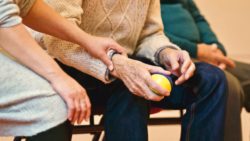By Dr Kelly HallDepartment of Social Policy, Sociology and Criminology Social care services are reported to be facing a ‘perfect storm’ of financial and workforce pressures. Spending on social care is falling and fewer people receive publicly funded services. There is a workforce crisis and recent reports suggest that around a quarter of care workers … Continue reading “Can social enterprises tackle the social care crisis?”
Author: Guest editor
No ‘green crap’ and no ‘handouts’: how not to govern an energy crisis
By Dr Harriet ThomsonDepartment of Social Policy, Sociology and Criminology, University of Birmingham During the shock of the 1979 oil crisis, British civil servants coined the term ‘fuel poverty’ to describe households being unable to afford to heat their homes. Fast forward four decades, and we are yet again facing an existential threat from over-exposure … Continue reading “No ‘green crap’ and no ‘handouts’: how not to govern an energy crisis”
The true cost of changing childcare ratios
By Dr Madeleine FindonSchool of Education, University of Birmingham Recent headlines have revealed that one of the routes the Government is exploring to address the cost-of-living crisis is adjusting childcare ratios for two-year-olds in England. For the reader who is less familiar with the current requirements, adults working with 2-year-olds in England may currently be … Continue reading “The true cost of changing childcare ratios”
What happens to a leader when charisma fades?
By Dr Scott TaylorProfessor in Leadership & Organisation Studies, Department of Management Many leaders would like to claim they have charisma, perhaps because it is one of the first terms we reach for when we try to describe what makes a good leader. At the same time, it’s a mysterious, even mystical, idea, reflecting its … Continue reading “What happens to a leader when charisma fades?”
Putin’s Ukrainian war, sanctions, and the tragedy of the Russian people
By Professor John BrysonDepartment of Strategy and International Business, University of Birmingham Russia’s Ukrainian military campaign has many origins. One of these is Putin’s on-going failure to govern Russia to create better outcomes for those living and working in Russia. Another reflects the failure of all governments, including all European states, the US and China, … Continue reading “Putin’s Ukrainian war, sanctions, and the tragedy of the Russian people”
How visually-impaired children have faced isolation during the pandemic
By Anna PilsonLecturer in Vision Impairment Education A recent report from Angel Eyes NI has found that the COVID-19 pandemic has led to an “alarming decline in emotional health and wellbeing” for some blind or visually-impaired children. This timely research has been undertaken in a context of a wider-UK governmental focus on the wellbeing of … Continue reading “How visually-impaired children have faced isolation during the pandemic”
How consumerism stole Valentine’s Day
By Dr Sophie King-Hill, Senior Fellow in the Health Services Management Centre (HSMC) University of Birmingham Valentine’s Day is upon us, and with it, many of us are buying gifts and cards for others to proclaim our love, care and affection for them. On face value, this seems like an innocent and pleasant thing to … Continue reading “How consumerism stole Valentine’s Day”
Assessing sexual behaviour in children and young people
By Dr Sophie King-HillHealth Services Management Centre, University of Birmingham Sexual behaviours in children and young people (CYP) aged 13-18 is an unexplored research area within the UK context, and no assessment tools for these behaviours currently exist that are underpinned by UK-focussed research. The national conversation taking place around sexual harassment in UK schools … Continue reading “Assessing sexual behaviour in children and young people”
Riding the wave: Smart charities vs The pandemic vs The post-pandemic
By Dr Roshan Boojihawon, Senior Lecturer in StrategyDepartment of Strategy and International Business, University of Birmingham The notable rise in charitable giving is welcomed news but is it sustainable or just a momentary burst in charitable giving? There is no doubt that the pandemic has brought together several factors that have contributed to this rise. … Continue reading “Riding the wave: Smart charities vs The pandemic vs The post-pandemic”
Home education: a better choice or the destruction of socialisation?
By Dr Jing Du The Department of Finance, University of Birmingham Due to the COVID-19 pandemic, schools in many countries had to close and move from classroom-based to remote/online teaching since early 2020. According to BBC research, the number of children registered for home education increased by 75% in the first eight months of the … Continue reading “Home education: a better choice or the destruction of socialisation?”










